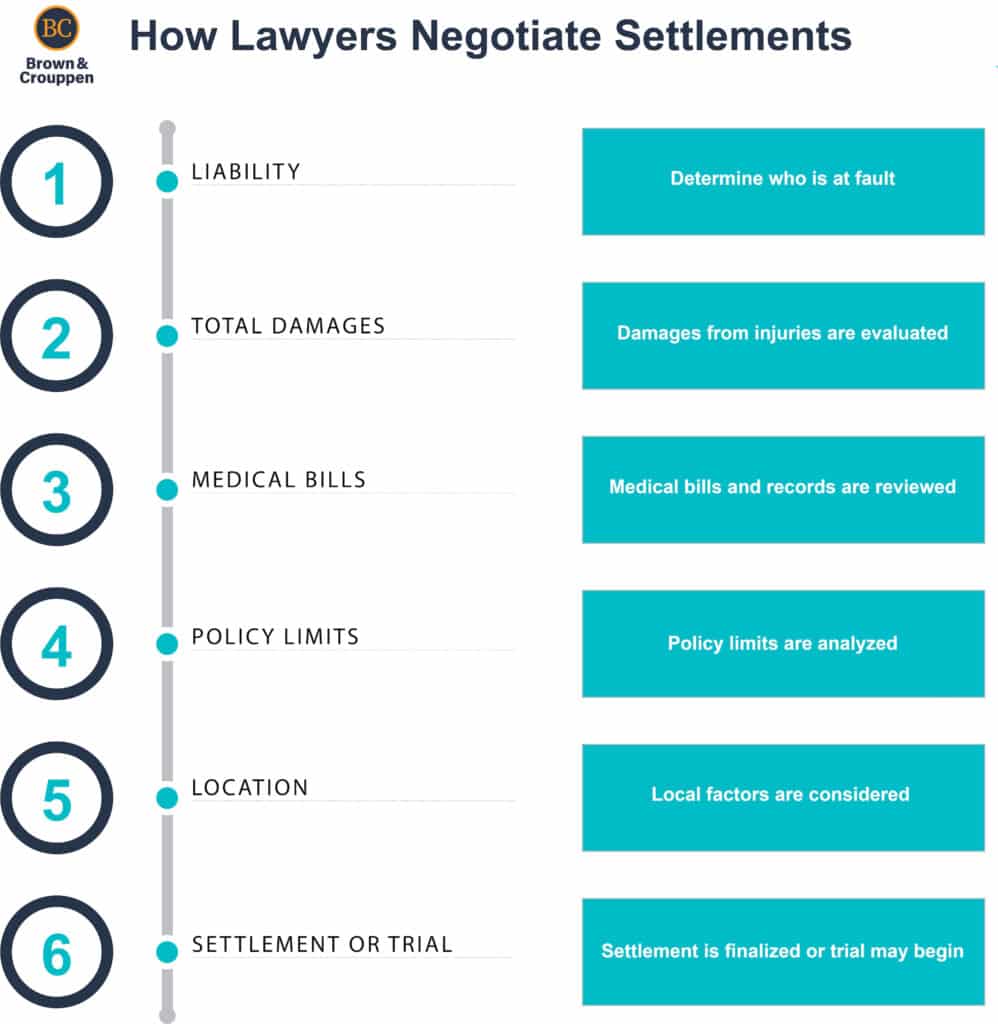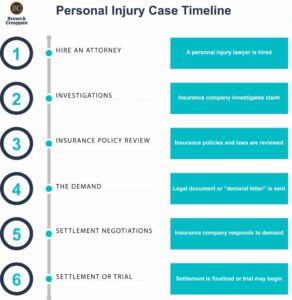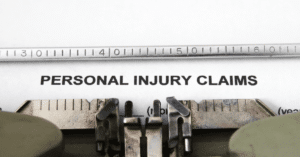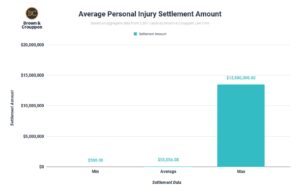Studies have shown that having a lawyer represent your case is more likely to lead to compensation from the claim and a higher settlement amount. In a study by Nolo, it was found that 91% of people who hired a lawyer received a settlement. The same study showed that only 51% of people received a settlement without a lawyer.
In our civil courts system, monetary compensation is the only recovery an injured party can demand. Money may not repair an injury entirely, and injured parties would prefer never to experience the pain and limitation of their injury rather than to receive any amount of money. As one may not unscramble an egg, the courts cannot take away the injury itself. What they do allow is for the at-fault party to provide monetary compensation to the injured person as a means of accountability.
Typically, at-fault parties, particularly in the cases of motor vehicle crashes or premises liability injuries, will carry some form of casualty insurance to protect them from large liability claims. The insurance carrier will assign an adjuster to negotiate the claim on the at-fault party’s behalf, and the at-fault party will have little to no say with regard to how much is offered to the injured party. Negotiations will occur among the adjuster, the adjuster’s assigned defense counsel (without input from the insurer), and the personal injury attorney (with the client’s input and authority). Settlement negotiations can be made before a lawsuit has been filed or afterwards. Sometimes, either by court request or by the request of one party, the parties may enter into a mediation to negotiate the claim. This is a non-binding process during which the parties sit down in the same building where an experienced mediator (or someone who has negotiated similar types of claims over the years) will assist the parties to come to a resolution on the case.
Generally, you will not be able to sue someone after a settlement has been reached. However, there are some exceptions for when you can sue someone after a settlement has already been finalized.


Were you injured in an accident due to someone else’s negligence? Get legal help from the most effective injury law firm in the Midwest.
Considerations That Personal Injury Attorneys Use In Negotiating Settlements

Below are some considerations that personal injury attorneys use in negotiating settlements.
1. Liability
The first step of the negotiation process is to determine who is at-fault and the degree of fault. In a personal injury claim, the at-fault party is generally liable for any damages that occurred as a result of negligence. However, this can vary from state to state.
2. Total Damages
Generally, an injured party can seek compensation for economic and non-economic damages in a personal injury claim.
- Economic damages – Are grouped to reimburse the actual cost of the injuries. These include medical expenses, lost wages, medical devices, mileage to and from the doctor’s office. These costs tend to be concrete and easy to calculate.
- Non-economic damages – Include severe pain, emotional distress, reputational damage, humiliation, loss of companionship, loss of enjoyment, and the worsening of preexisting injuries. Non-economic damages are often common with severe and catastrophic injuries.
Personal injury attorneys take these damages into consideration as they negotiate their settlements with adjusters, though occasionally insurance adjusters argue that the costs are neither relevant nor reasonable.
3. Medical Bills
Medical bills are not always clear-cut. Depending on the state in which you received your injury, a jury may be presented different information about the cost of your medical treatment. In some states, the medical bills that can be submitted to the jury are the total bills before any insurance payments or contractual adjustments. In other states, the jury can see the bills after the contractual adjustments and can consider the reasonable cost of treatment being only that which was actually paid or owed on the medical bill. This allows the at-fault party, or more likely that party’s insurer, to reap the benefit of the injured party carrying health insurance or the medical provider allowing charitable reductions in the billing without conferring any benefit to the injured party or to the public at large.
Occasionally, insurance adjusters argue that the medical treatment associated with the injury is not related to the injury, particularly when there is a “gap” in treatment, or that the charges assigned by the medical provider are unreasonable, so that the adjuster will attempt to assign his or her own value to the treatment. These are defense tactics to “nickel and dime” the injured party, who still owes the bill regardless of whether the adjuster thinks the cost is reasonable. Good personal injury attorneys see this tactic for what it is, refusing to accept it at face value in the negotiating process. If these questions become a serious contention in negotiations or at trial, then the personal injury attorney can present evidence from a treating doctor that the treatment was related to the injuries sustained in the incident in question (e.g. the crash or fall), or hire an expert to opine with regard to how reasonable the cost of medical care is. Conversely, the insurance company may hire its own “expert” to provide opinions consistent with its own stance.
4. Policy Limits
Unfortunately, sometimes the injuries exceed the at-fault party’s insurance policy. Most states only require that drivers carry liability coverage up to $25,000 per person and$50,000 per incident. In other words, the insurance carrier need not pay more than $25,000 to someone injured in a collision, regardless of an injury’s severity.
This policy intends to cover everything from medical bills to lost wages. Though the injured party can refuse to accept policy limits and pursue the at-fault party’s assets directly, there are circumstances under which this might not be in the best interest of the injured party, as the litigation process is expensive, and the defendant may be “judgment-proof” (i.e, he or she has no assets). Under such circumstances, the attorney will seek other potential insurance policies during the settlement process, including underinsured motorist policies or potential other-party policies, and try to negotiate a higher personal injury settlement.
5. Location
Another factor with respect to negotiating settlements is location In other words, where would a lawsuit be filed, and what kind of jury would consider the case? Certain venues are favorable to injured parties, while others are more conservative in that they are less likely to award non-economic damages. While location fails to play a major role in a claim’s value, a personal injury attorney and a defense negotiating a claim will often attempt to find a venue’s previous verdicts in order to show juries that a venue takes injuries seriously and will hold the at-fault party accountable.
Dedicated personal injury attorneys have the knowledge and tools to negotiate injury settlements. If you or a loved one has been injured due to someone else’s negligence and need guidance in negotiating your injury settlement, contact a personal injury lawyer at Brown & Crouppen for a free consultation.
Insurance Company Negotiations
Once the above considerations have been examined and calculated, the attorney on the case will be able to begin the negotiation process with the insurance company. This often begins with a settlement demand letter for the maximum policy limit, but may vary from case to case depending on evidence, state laws, and the degree of injuries.
Insurance companies often respond to demand letters with a lower amount, requiring further work and negotiations throughout the settlement process.
In some cases, insurance companies will refuse to cooperate or negotiate. When this happens, personal injury cases may go to trial if a settlement agreement cannot be reached. A lawyer will be able to provide information about whether a case is in the client’s best interest to go to trial.








